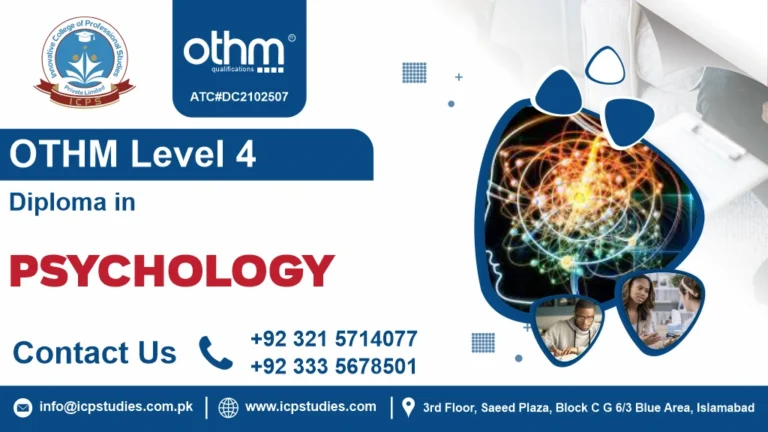Are you ready to explore a world of endless possibilities and revolutionize how we engage with technology? Look no further! Our state-of-the-art OTHM Level 7 Diploma in Immersive Software Engineering program is crafted to provide you with the skills and knowledge to become a leader in the ever-evolving field of immersive software engineering.
Technologies like Virtual Reality (VR), Augmented Reality (AR), and Mixed Reality (MR) are transforming our digital experiences. Our extensive course will immerse you in these cutting-edge technologies, equipping you to create innovative and interactive software applications that break new ground.
Software Engineering is the foundation of modern technological marvels. Our diploma will guide you through a comprehensive journey, covering core principles of software development, project management, and quality assurance. Gain valuable insights and practical experience, preparing you for success in the fast-paced tech industry.
With a strong emphasis on user experience (UX) design, you’ll learn to create user-friendly interfaces that captivate and delight. Let your creativity shine as you develop immersive environments that keep users engaged and coming back for more.
Apply theory to practice with our project-based learning approach. Collaborate with industry experts and peers on real-world projects that challenge and inspire you. Our hands-on method ensures you graduate job-ready, with a portfolio that demonstrates your expertise and innovation.
In a rapidly changing digital landscape, staying current is crucial. Our expert instructors, leaders in immersive software engineering, will guide you through the latest trends and technologies. Be at the forefront of software innovation and lead the way into the future.
Whether you’re an experienced professional seeking to upskill or a tech enthusiast ready for a cutting-edge career, our OTHM Level 7 Diploma in Immersive Software Engineering opens doors to various industries. From gaming and entertainment to healthcare and education, your skills will be in high demand.
Don’t miss out on this opportunity—unlock a world of limitless possibilities! Embrace the future of software engineering with confidence and elevate your career to new heights.
Enroll now and step into a realm where technology and imagination converge. The future of immersive software engineering awaits – will you seize it? Act fast, and let’s create a world of boundless innovation together!
Innovative College of Professional Studies (Pvt) Ltd is OTHM Approved Training Centre in Islamabad Pakistan (ATC#DC2102507)
All About OTHM Level 7 Diploma in Immersive Software Engineering
Course Overview
The OTHM Level 7 Diploma in Immersive Software Engineering is an advanced qualification designed to provide individuals with in-depth expertise in the field of immersive software engineering. Perfect for both aspiring professionals and current practitioners looking to enhance their skills, this course focuses on the creation of innovative and interactive software applications.
Immersive software engineering emphasizes the development of software and applications that engage users through cutting-edge technologies such as virtual reality (VR), augmented reality (AR), mixed reality (MR), and other interactive platforms. This diploma program offers students an extensive exploration of the principles, techniques, and industry best practices crucial for designing and developing these advanced applications.
Learning Outcomes
Upon successful completion of the OTHM Level 7 Diploma in Immersive Software Engineering, students will achieve the following learning outcomes:
- Profound Understanding of Immersive Technologies: Students will gain an in-depth comprehension of virtual reality (VR), augmented reality (AR), mixed reality (MR), and other immersive technologies, including their core principles, functionalities, and potential applications.
- Competent Software Engineering Skills: Graduates will acquire robust software engineering skills, enabling them to design, develop, and implement interactive software applications using immersive technologies, while adhering to industry best practices and standards.
- Proficiency in Virtual Reality Development: Students will become proficient in creating virtual reality experiences, encompassing 3D modeling, environment design, user interaction, and optimization techniques for delivering compelling VR applications.
- Expertise in Augmented Reality Development: Graduates will demonstrate expertise in developing augmented reality applications, including marker-based and markerless AR, spatial mapping, and real-time user interaction to create immersive and context-aware experiences.
- User-Centric Design Principles: Students will apply user experience (UX) design principles to create intuitive and engaging user interfaces for immersive software applications, ensuring a seamless and enjoyable user experience.
- Effective Project Management: Graduates will develop project management skills, enabling them to efficiently plan, execute, and deliver immersive software projects, meet deadlines, manage resources, and achieve project objectives.
- Critical Thinking and Problem-Solving: Students will be equipped to analyze complex problems related to immersive software engineering and devise innovative solutions, applying critical thinking and problem-solving skills.
- Adaptability to Emerging Trends: Graduates will stay abreast of the latest developments in immersive technologies and related software engineering practices, remaining adaptable and ready to tackle emerging industry challenges.
- Collaboration and Communication: Students will develop strong teamwork and communication skills, facilitating effective collaboration with peers and industry professionals while working on real-world projects.
- Ethical and Responsible Tech Use: Graduates will understand the ethical considerations and implications of immersive software engineering, demonstrating responsible technology use and privacy-conscious practices.
- Industry-Relevant Portfolio: Students will build a comprehensive and industry-relevant portfolio showcasing their practical skills, theoretical knowledge, and innovative projects, enhancing their employability and career prospects.
- Lifelong Learning Mindset: Graduates will embrace a lifelong learning mindset, recognizing the importance of continuous professional development in a rapidly evolving tech landscape.
The achievement of these learning outcomes will enable students to become proficient, creative, and responsible immersive software engineering professionals, ready to make a positive impact in the field and contribute to the advancement of immersive technologies across various industries.
The entry requirements for the OTHM Level 7 Diploma in Immersive Software Engineering typically include:
- Educational Qualifications:
- A minimum of a Level 6 qualification (such as a bachelor’s degree) in a relevant field, such as computer science, software engineering, or information technology.
- Professional Experience:
- Relevant work experience in software development or engineering is usually required, especially in immersive technologies (e.g., virtual reality, augmented reality).
- Technical Skills:
- Proficiency in programming languages and development tools relevant to immersive software engineering may be expected.
- English Language Proficiency:
- For non-native English speakers, proof of English language proficiency may be required (e.g., IELTS score or equivalent).
- Age Requirement:
- Candidates should generally be at least 18 years old.
- Additional Documentation:
- Some institutions may require a personal statement or CV outlining relevant experience, technical skills, and motivation for pursuing the course.
Always verify with the specific institution offering the course for any variations or additional requirements.
The OTHM Level 7 Diploma in Immersive Software Engineering is designed for:
- Software Developers: Professionals looking to specialize in immersive technologies like virtual and augmented reality.
- Tech Industry Professionals: Individuals in technology roles who want to advance their skills in software engineering for immersive applications.
- Game Developers: Those involved in game design and development seeking to enhance their understanding of immersive software.
- Computer Science Graduates: Recent graduates with a background in computer science or related fields wanting to focus on immersive technologies.
- Entrepreneurs: Individuals interested in starting their own ventures in the immersive technology space.
This course is ideal for anyone aiming to deepen their expertise in the development of immersive software solutions.
4o mini
Key Takeaways
The OTHM Level 7 Diploma in Immersive Software Engineering consists of 6 mandatory units for a combined total of 120 credits, 1200 hours of Total Qualification Time (TQT), and 600 Guided Learning Hours (GLH) for the completed qualification.
Mandatory Units
OTHM Level 7 Diploma in Immersive Software Engineering consists of the following modules:
The OTHM Level 7 Diploma in Immersive Software Engineering empowers learners to advance in their careers or pursue further studies.
Approved and regulated by Ofqual (Office of the Qualifications and Examinations Regulation), this qualification may enable learners to progress to a master’s top-up program at numerous universities in the UK and abroad with advanced standing.
FAQs Related to OTHM Level 7 Diploma in Immersive Software Engineering







